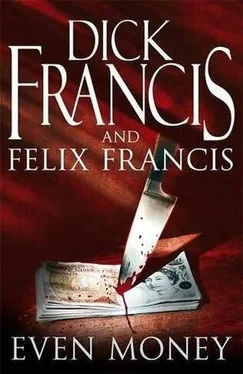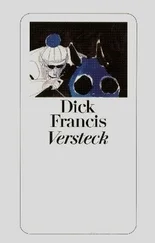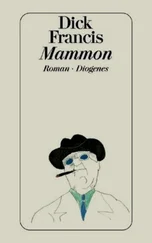
Dick Francis, Felix Francis
Even Money
© 2009
For our grandsons and sons
MATTHEW
on his marriage to Anna
and
WILLIAM
on passing out from
The Royal Military Academy, Sandhurst
So proud of them both
With thanks to
NICK BENNETT
bookmaker’s assistant
MALCOLM PALMER
Coral Bookmakers
and
The Hanging Rock Racing Club
Victoria, Australia
BOOKMAKERS’S ODDS AS USED ON BRITISH RACETRACKS

*

Isank deeper into depression as the Royal Ascot crowd enthusiastically cheered home another short-priced winning favorite. To be fair, it wasn’t clinical depression-I knew all about that-but it was pretty demoralizing, just the same.
I asked myself yet again what I was doing here. I had never really enjoyed coming to Ascot, especially for these five days in June. It was usually much too hot to be wearing morning dress, or else it rained, and I would get soaked. I preferred the informality of my usual haunts, the smaller steeplechase tracks of the Midlands. But my grandfather, who had started the family business, had always used the fact that we stood at the Royal Meeting as one of our major marketing tools. He claimed that it gave us some form of respectability, something he had always craved.
We were bookmakers. Pariahs of the racing world. Disliked by all, and positively hated by many, including large numbers of those whose very livelihoods depended on gambling. I had discovered over the years that my clients were never my friends. Whereas City investors might develop a close relationship with their stockbrokers, punters never wanted to be seen socializing with their bookies. Most of my regulars didn’t even know my name, nor did they want to. I suppose that was fair. I didn’t know most of their names either. We were simply participants in transactions where each of us was trying to bankrupt the other. I suppose it was a situation not really likely to engender mutual respect.
“Score on seven,” said a tall, top-hatted young man thrusting a banknote towards me. I glanced up at our board to check the odds we were offering on horse number seven.
“Twenty pounds on number seven at eleven-to-two,” I said, taking his note and adding it to the wad of others in my left hand.
A small printer in front of me whirred and disgorged a ticket that I handed to the man. He snatched it from me and moved quickly away into the throng as if he didn’t want to be seen fraternizing with the enemy. His place in front of me was taken by a short, portly gentleman whose multicolored vest was fighting a losing battle against his expansive stomach. He was one of my regular Royal Ascot customers. I knew him only as A.J., but I had no idea what the A.J. stood for.
“Hundred on Silverstone to win,” he wheezed at me, holding out some folded twenty-pound notes in his chubby fingers.
“Hundred on two at even money,” I said, taking his cash and checking the amount. Another betting slip appeared out of the small printer as if by magic, and I passed it over. “Good luck, A.J.,” I said to him, not really meaning it.
“Huh?” he said, somewhat surprised by my comment.
“Good luck,” I repeated.
“Thanks,” he wheezed, and departed.
In the good old days, when bookmaking was an art rather than a science, every transaction was written down in “the book” by an assistant. Nowadays, as in most things, it was on a computer that everything was recorded. The same computer that printed the betting slips.
It kept a running tally of all the bets that we had taken, and also constantly updated our profit or liability for every possible outcome of the race. Gone were the days when it was down to the gut reaction of the bookmaker to decide when and by how much to change the prices we displayed on our fancy electronic board. Now the computer decided. Bookmaking was no longer by instinct, it was by fractions.
When I had started working for my grandfather I had been his “runner.” It had been my job to take cash from his hand and use it to back a horse with other bookmakers, a horse on which he had taken some large bets, in order to spread his risk. If the horse was beaten, he didn’t make so much, but, conversely, if it won, he didn’t lose so much either. Now even that was done by computer, betting and laying horses on the Internet exchanges, even during the actual running of the race. Somehow, the romance and the fun had disappeared.
Just as mobile phones have caused the demise of the tic-tac men, computer gambling was now killing off any bookmakers with personality who were prepared to back their hunches. And I wasn’t at all sure if it was good for the punters, or for racing.
“Twenty pounds, horse two,” said another man taking the plunge.
“Twenty on two at evens,” I repeated, not so much for the man in front of me, more for Luca Mandini, my assistant, to enter the bet on his computer.
Luca was my magician, my Internet whiz kid with a razor-sharp mathematical brain who stood right behind me. His fingers tapped his keyboard, and the betting slip duly appeared from the printer.
Without Luca, I was sure I would have given up by now, forced out by the relentless bullyboy tactics of the big bookmaking firms who did all they could to squeeze the profit out of the small independents. It was the same in the grocery trade, where the big supermarkets used their muscle to force the small shops to close. They didn’t necessarily do it on purpose; they just did it in their never-ending drive for bottom-line figures to satisfy the expectations of some faceless group of shareholders. I was the sole shareholder in my business, and I felt the pain.
I lived in daily fear that Luca would be enticed away from me by some other outfit, maybe one of those big firms who, it seemed, would stop at nothing to put the likes of me out of business in their greedy quest to capture a larger share of the betting market.
I took the slip from the printer and handed it to the man standing patiently in front of me.
“Are you Teddy Talbot?” he asked.
“Who wants to know?” I asked him back while looking beyond for my next customer.
“I know your grandfather,” said the man, ignoring my question.
My grandfather’s name had indeed been Teddy Talbot, and it was his name that was still prominently displayed above our prices board next to me. The slogan actually read TRUST TEDDY TALBOT, as if the extra word might somehow encourage punters to bet with us rather than the next man.
“My grandfather’s dead,” I said, still looking beyond him and hoping that he would move away. He was disrupting my business.
“Oh,” he said. “When did he die?”
I looked down at him from my lofty position on a foot-high metal platform. He was gray haired, in his late fifties or early sixties, and wearing a cream linen suit over a light blue shirt that was open at the neck. I envied the coolness of his attire. “Look,” I said, “I’m busy. If you want to talk, come back later-after the last. Now, please move aside.”
“Oh,” he said again. “Sorry.”
He moved away, but only a short distance, from where he stood and watched me. I found it quite disconcerting.
Читать дальше















